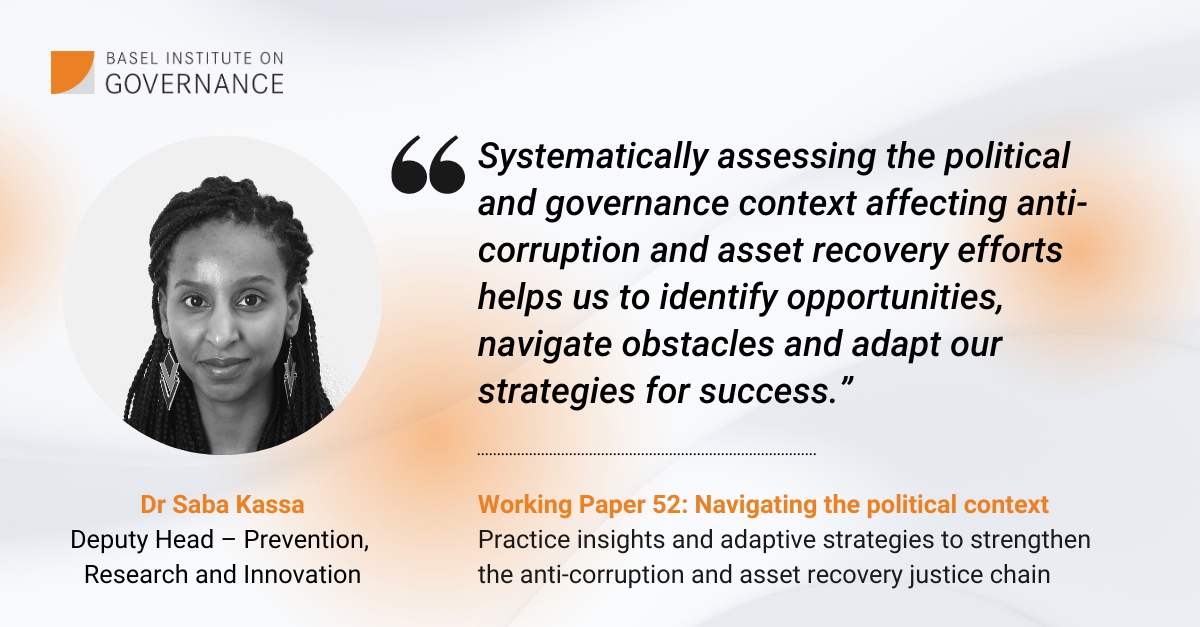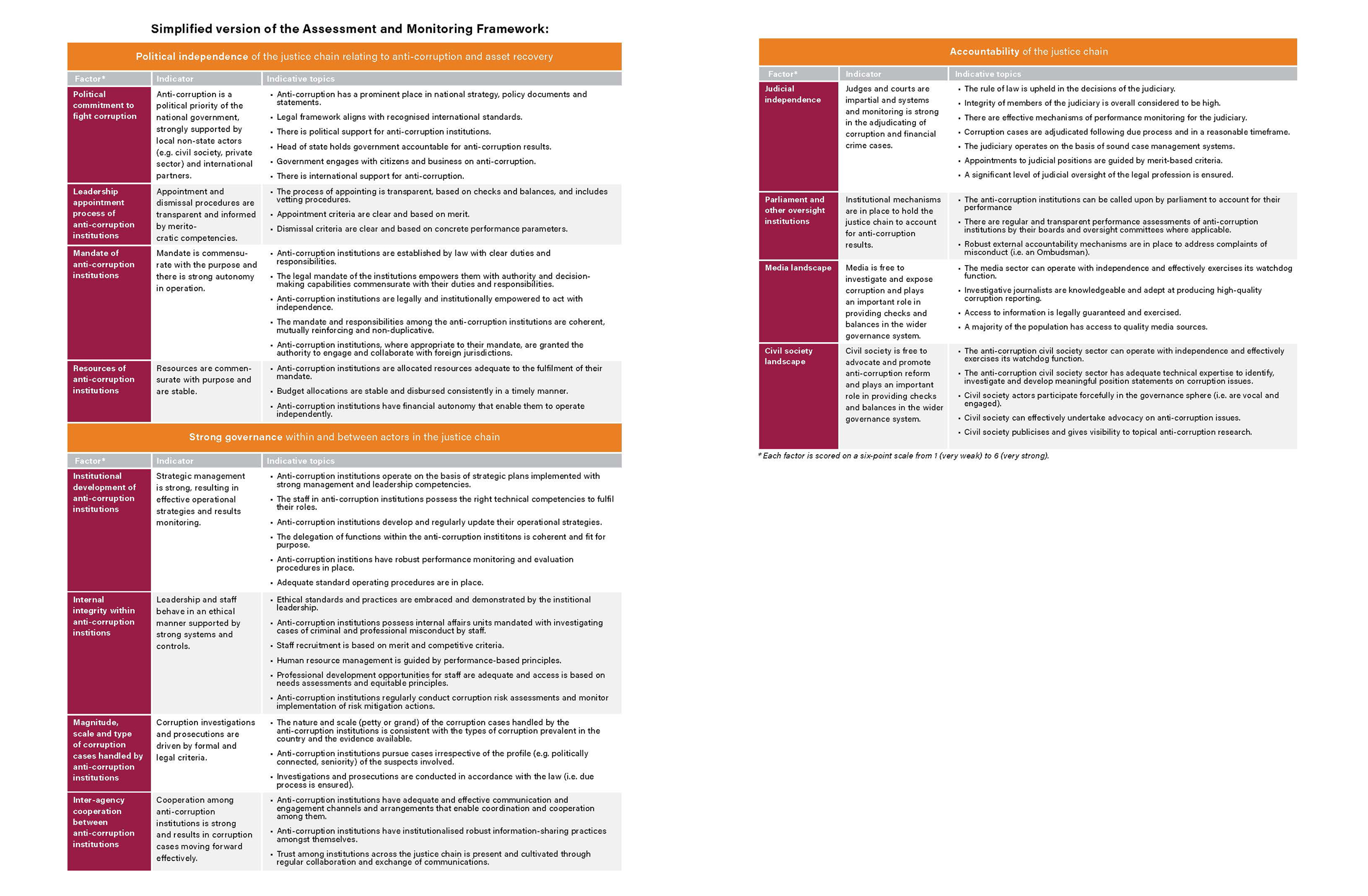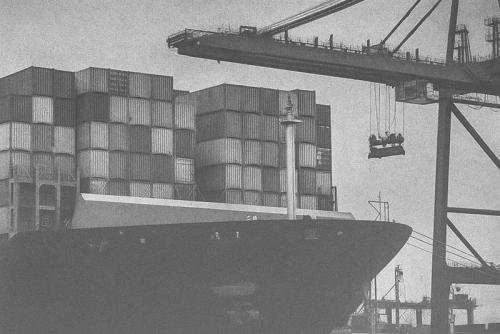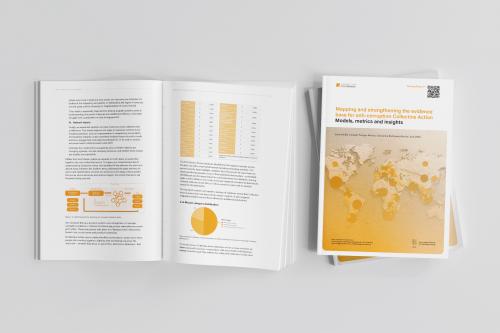New Working Paper and framework for navigating the political context of anti-corruption and asset recovery

Politics matters for the success of anti-corruption and asset recovery efforts. That is the starting point of our latest Working Paper, based on a two-year research project that combined the expertise and hands-on experience of our Prevention, Research and Innovation (PRI) team and our International Centre for Asset Recovery (ICAR).
The report discusses the political and governance factors that affect the performance of the justice system in relation to anti-corruption and asset recovery.
It also provides guidance on assessing these factors systematically – including through a novel Assessment and Monitoring Framework – with the goal of developing adaptive strategies to strengthen the justice chain in line with changing contexts.
It draws on the experience and insights of ICAR staff working with anti-corruption institutions across the globe. It fills an important gap by enabling the systematic assessment and monitoring of contextual factors that impact the effectiveness of justice systems in relation to anti-corruption and asset recovery. A few takeaways below:
Thinking politically
The evidence shows that there is a more conducive environment for strong performance of the justice system in relation to anti-corruption and asset recovery when there is:
- strong political independence of the justice chain;
- strong governance within and between the anti-corruption institutions that constitute the chain;
- strong accountability of the respective anti-corruption institutions.
There are 12 key political and governance factors in these three dimensions that shape the effectiveness of the justice chain. In this ecosystem, the justice chain sits at the centre, shaped top-down by governance factors related to political independence and bottom-up by governance factors related to accountability. You can click on the graphic below to expand it:

Assessing and regularly monitoring changes in these factors makes it possible to identify opportunities and entry points for strengthening approaches to anti-corruption and asset recovery. It also works to explain where and why barriers to change and risks may arise.
More complex than one might think
Applying the framework demonstrates that what sounds straightforward at first glance – namely that an enabling environment will influence the justice chain’s performance positively – is actually much more complex.
A seemingly conducive environment for improving the performance of anti-corruption institutions often comes with challenges and resistance:
- Opponents of reform fight back hard and often dirty.
- Solid anti-corruption and asset recovery results take time, which may fuel disappointment and discontent, hence civic expectations need to be managed.
- And as the fight against corruption intensifies and anti-corruption institutions start making progress, things are often perceived as getting worse.
The flipside of this paradox is that even in an unfavourable context, when political and governance factors appear weak, opportunities to strengthen rule of law performance in relation to anti-corruption and asset recovery can still be found.
Thinking politically allows us to make sense of this puzzle and navigate complex political contexts better. It highlights the importance of understanding how complex political and governance contexts shape the success of anti-corruption and asset recovery reforms.
Working politically
Changes in the political space for successful anti-corruption reform often follow a cyclical pattern, with windows of opportunity for deep reform opening and closing as the balance of power between pro- and anti-reform forces shifts.
Understanding this cycle helps to identify how efforts to promote more robust performance of the justice chain can be better aligned, and made more responsive and proactive.
Working politically highlights opportunities to prepare for, promote and deepen windows of opportunity to influence anti-corruption reforms. It is also helpful for thinking strategically about adapting approaches to prevent and slow regression and using anti-corruption principles to prevent abuse.
Key approaches for adapting in an agile manner to contexts where spaces for successful anti-corruption reforms will vary include:
- cultivating trust with partners and stakeholders;
- promoting the rule of law as a collective endeavour;
- fostering institutionalisation through policies, systems and partnerships;
- celebrating and communicating success; and
- leveraging international and domestic partnerships to strengthen efforts.
The lessons learnt from the frontline of practice emphasise that success in fighting corruption and recovering assets does not require having the perfect environment, institutions or people in place. Rather, adopting flexible engagement approaches tailored to specific contexts has proven effective.
A tool for thinking and working politically
The Assessment and Monitoring Framework at the heart of this paper is an evidence-based and practical tool that guides anti-corruption and asset recovery practitioners on how to tailor and localise their efforts in line with the political economy of each specific context.
It comprises the 12 identified factors and provides an indicator for each. Additionally, indicative topics help to assess these indicators.

The framework allows for an in-depth analysis and facilitates the development of baseline and update assessments in support of adaptive programming decisions.
Applying the Assessment and Monitoring Framework is helpful in a variety of ways – to:
- comprehend the wider political and governance situation;
- understand the implications of changes in the political context;
- monitor red flags that could indicate political instrumentalisation; and
- identify and design responses to opening or closing windows of opportunity.
Overall, it supports interventions that adapt to shifts in the political environment to achieve results.
Learn more
- Download Working Paper 52: Navigating the political context: Practice insights and adaptive strategies to strengthen the anti-corruption and asset recovery justice chain, by Dr. Saba Kassa




